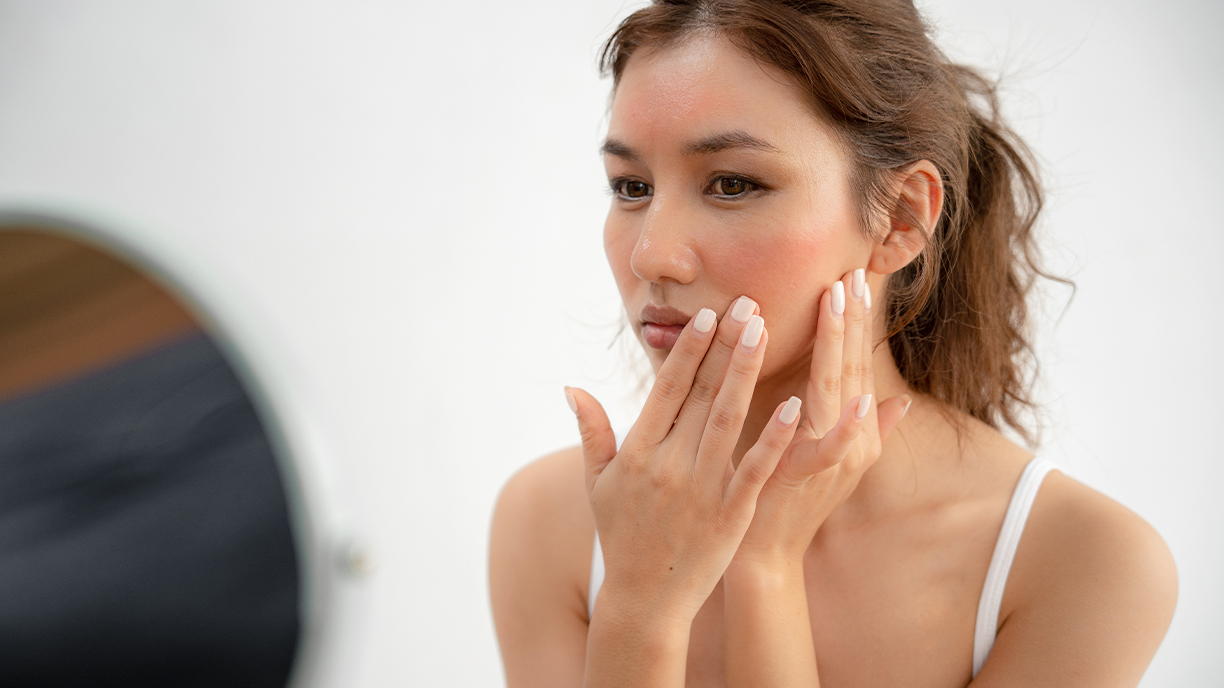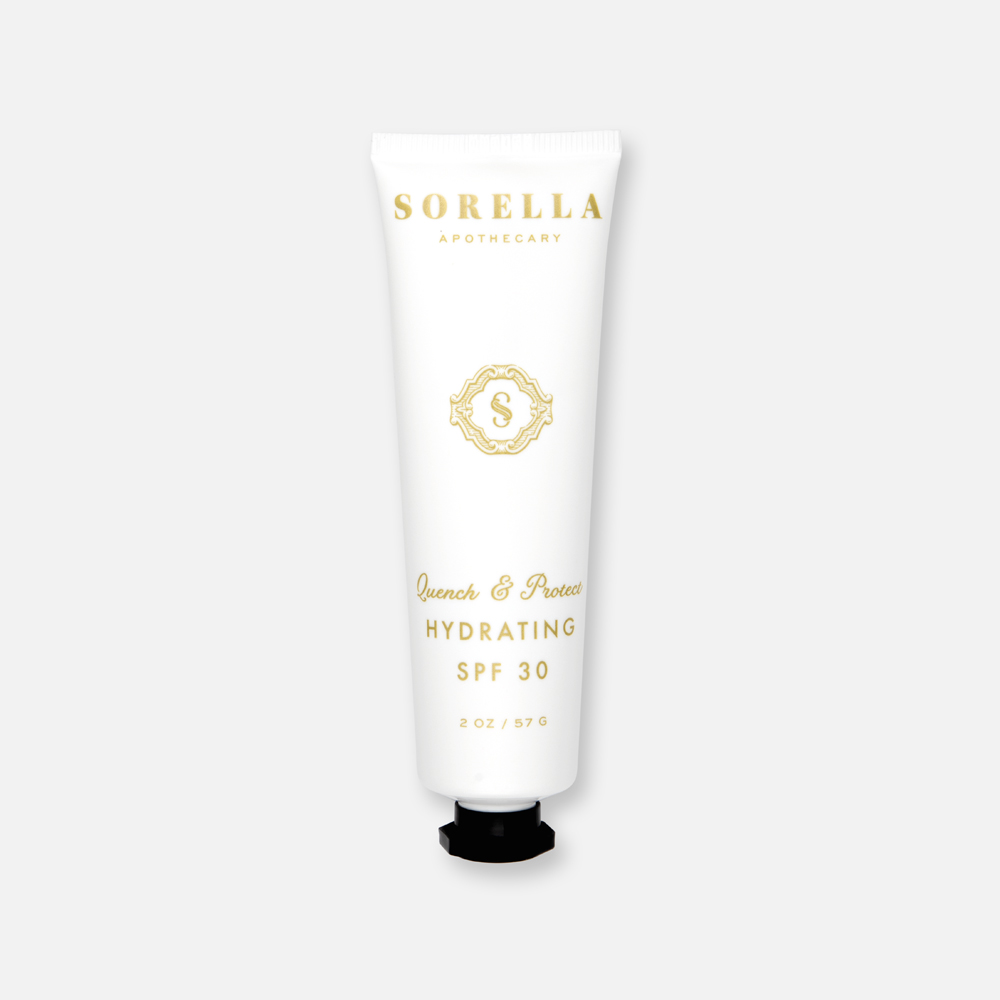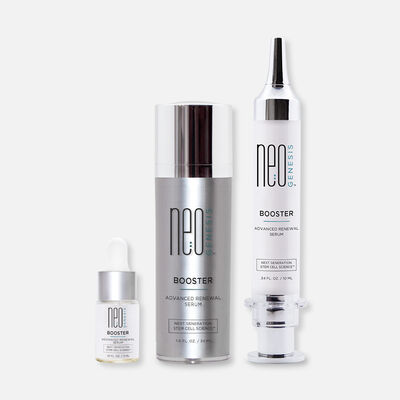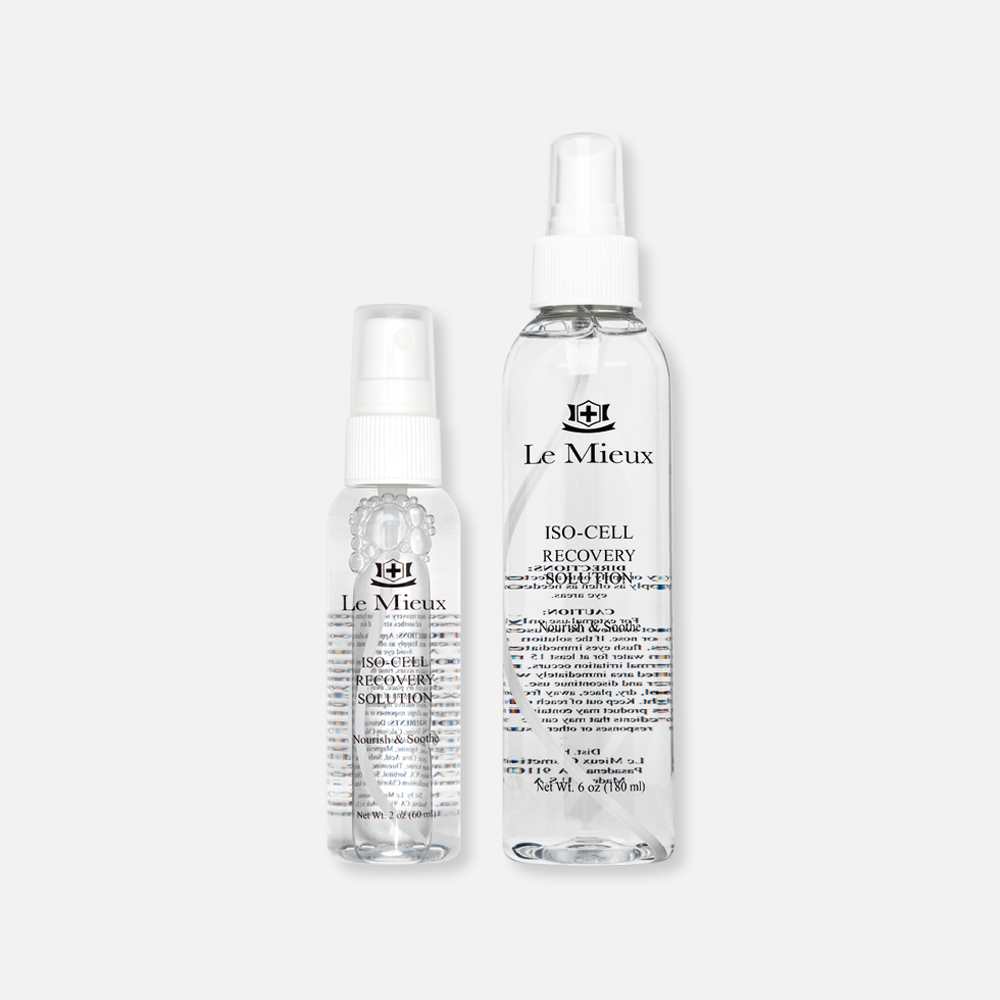
Over the last few years, I have seen an unfortunate trend in skin health: compromised skin barriers. Many clients come to me with troubling skin issues resulting from a damaged skin barrier. This is often the result of home care regimens that are far too aggressive. Our clients often believe that they have sensitive skin but, in reality, their skin is overly sensitized from using harsh ingredients. This leads to more breakouts, redness, rosacea symptoms, and all around uncomfortable skin.
- What Is The Skin Barrier & How Can We Support It?
- How Does A Damaged Skin Barrier Occur?
- How Can We Repair The Skin Barrier Function?
- How Can We Maintain A Healthy Barrier?
What Is The Skin Barrier & How Can We Support It?
The outermost layer of our skin is called our skin’s barrier. Not only is it the part of the skin that we see first, but it’s also our first line of defense against environmental pollutants that wreak havoc on our skin. Pollution, toxic chemicals, irritants, UV rays, and free radicals are all filtered by our skin barrier–assuming it is healthy!
A damaged barrier leaves our skin cells vulnerable to these irritants and our skin becomes inflamed, appears less healthy, and looks visibly compromised. A healthy barrier looks radiant and retains moisture. It has a youthful elasticity and appears plump.
How Does A Damaged Skin Barrier Occur?
Barrier damage is a result of many things. Internal and external factors, such as too much sun, poor diet, lack of exercise, overly hot showers, or the overuse of drugs or alcohol, can cause a damaged barrier.
When it comes to products, the damage is often caused by the over-use of harsh, exfoliating products. These products overstimulate and over-exfoliate the skin’s barrier. Exfoliating your skin is important to remove dead skin cells, but it is definitely possible to overdo it. When your skin becomes completely stripped, it has a much harder time rebuilding its barrier.
How Can We Repair The Skin Barrier Function?
Eliminate Irritants
Once you have identified that your issues are stemming from a compromised barrier, you will need to begin by eliminating any harsh, exfoliating products. Anything that contains an acid, physical exfoliant beads, or even vitamin C should be eliminated until balance has been achieved. You should also watch for products that have alcohol in the first five ingredients, these can be stripping and inhibit skin healing.
Back to Basics
Now that you have eliminated any possible irritants, it’s time to get back to the basics. Cleanser, Serum, Moisturizer, and SPF! By starting with a simple routine full of good ingredients your skin will heal quickly. During this time, we are working to fortify the skin’s barrier by bringing balance to the skin, which includes reducing inflammation and skin sensitivity.
Choose The Right Ingredients
Your skin will heal faster with the right ingredients. I recommend simple formulations, including ingredients like stem cells, antioxidants, wound-healing peptides, and deep hydrators.
Adding sunscreen to your daily routine will also deeply benefit your skin’s natural moisture barrier. I recommend finding an SPF that contains dimethicone, as it is an amazing, non-pore-clogging occlusive that protects the skin throughout the day.
To learn more about the best ingredients and products to use, read our blog Top Ten Ingredients For Repairing A Compromised Skin Barrier.
How Can We Maintain A Healthy Barrier?
Consume the right foods
The most important way to maintain and strengthen your skin’s moisture barrier is by drinking plenty of water and adding healthy fats and lipids into your diet. Adding an omega supplement can add the healthy fats to your diet that your skin is missing. I personally recommend this formulation from Face Reality.
Good Skincare Habits
There are also a few important skincare habits that will keep your skin happy and healthy. By creating habits that protect and nourish your skin, you will find that your skin is less prone to irritation, sensitivity, and breakouts.
First off, I recommend introducing new exfoliating products slowly. By starting slow, you can really see how your skin will react. If you use a new acid serum once and see some dryness and irritation right away, then I recommend only using it twice per week until your skin adjusts.
Secondly, make moisturizer and sunscreen a daily ritual. Even oily skin types should have a lightweight moisturizer that locks in hydration and creates a protective layer on the skin. As for the sunscreen, this is just a given! Your skin will thank you for protecting it from harsh UV rays.
My last bit of wisdom that I will give you before we part, is that I encourage you to trust your own judgment on a product. If every time you use it your skin feels raw, red, and sensitive, it just isn’t the right product for you. Your skin will be happier and healthier in the long run with a more gentle product!

Unsure where to start? Reach out for a free skincare checkup, and our licensed estheticians will optimize your routine for the best results. We’ll be here every step of the way!


